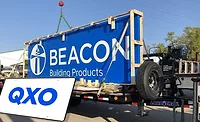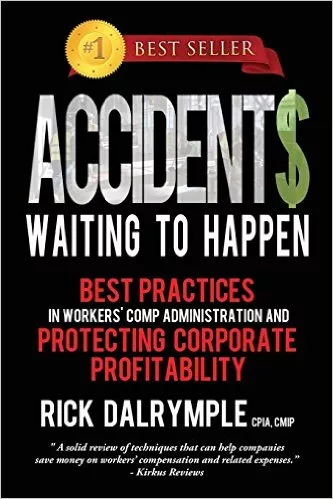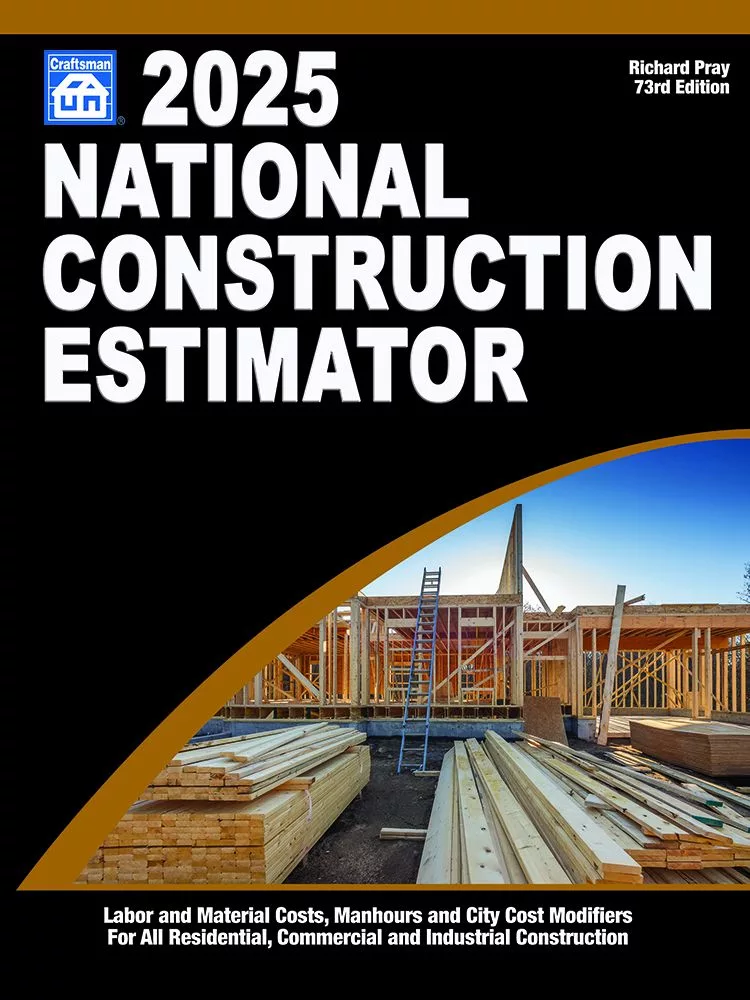IRE 2025
What Contractors Need to Know About Private Equity in 2025
From record-breaking acquisitions to rapid market consolidation, private equity continues reshaping the roofing industry and what it means for contractors

Max Zolotukhin/iStock / Getty Images Plus via Getty Images.
As day two of the International Roofing Expo unfolded at the Henry B. González Convention Center, with 15,000-some-odd attendees navigating half a million square feet of exhibition space, it set the stage for industry-defining discussions and deals.
Market research firm EMR reports that the U.S. roofing market, valued at $23.35 billion in 2024, is expected to grow at a compound annual growth rate of 6.6%, reaching $41.5 billion by 2034.
The robust growth continues to fuel the pace of private equity activity, making the likelihood of deals being struck greater than any previous IRE in recent memory.
According to one major player in roofing, at the start of 2023, there were 17 roofing contractor platforms. By the end of 2024, that number had jumped threefold to 56 platforms, representing a 229% increase in 24 months.
Likewise, in 2023, platforms acquired 106 roofing contractors. The following year, that number increased by more than 25%, with 134 contracting firms purchased either wholly or partially. In 2025, there have been at least five acquisitions large enough to garner the attention of the media, including:
- Tecta America acquired Alpine Roofing of Sparks, Nev., further strengthening its national presence
- Aligned Exteriors Group acquired a majority stake in Home Pro Roofing, expanding its Midwest presence into the Michigan and Ohio markets
- Eskola Roofing & Waterproofing expanded its operations across the Southeastern and Southwestern U.S. by acquiring Frontier Roofing, BBG Contracting Group, and Keating Roofing, increasing its locations to 22 across 11 states
- Roofing Services Solutions, backed by Dunes Point Capital, acquired Florida-based Quality First Roofing and expanded its portfolio to 11 locations.
As my colleague Chris Gray reported at the end of last year, consolidation is not relegated to roofing contractor firms. The industry's supply side witnessed significant transactions in 2024, most notably The Home Depot's purchase of SRS Distribution in a deal worth $18.3 billion, followed by Gulfeagle Supply’s acquisition of Elite Roofing Supply.
Although the terms of the Gulfeagle-Elite deal were not disclosed, the merger formed a single entity with over 140 branches nationwide, increasing its reach beyond that of most regional suppliers. While the Gulfeagle-Elite consolidation remains relatively small compared to roofing’s ‘Big 3,’ which includes SRS, ABC Supply Co., and Beacon Building Products, it demonstrates the activity in the sector as a whole. Not to be overlooked, the tech element of roofing has been equally active.
Recent investments, such as Sumeru Equity Partners' $330 million majority stake in JobNimbus — a software provider serving residential roofing contractors — highlight the sector's appeal. The entrance of ServiceTitan, another SaaS provider that made its bones as HVAC and plumbing went through similar consolidations, expanded into roofing following its annual Pantheon summit for users last fall.
What Roofing Contractors Should Be Thinking About in 2025?
With increasing demand for sustainable building solutions and the ongoing need for infrastructure maintenance, the sector remains a lucrative target for investors. The trends observed in 2024 — market consolidation, innovation, and regional expansion — will continue shaping the industry. The wave of consolidation by private equity has been driven principally by the use of portfolio companies, also referred to as platforms, as the vehicle of choice for strategic growth through acquisition.
Omnia Exterior Solutions, a subsidiary of CCMP Growth Advisors, exemplifies this approach. Omnia has rapidly built a regional powerhouse by acquiring multiple contractors within a year while maintaining its localized branding.
Similarly, as a MarketWatch report noted, Cornerstone Building Brands, a Clayton, Dubilier & Rice portfolio company, acquired Mueller Supply to strengthen its position in the metal roofing and building-solutions market.
Jim Ziminski, chairman of Omnia and a longtime executive in the roofing and exteriors space, offers contractors some insight into the future by first acknowledging that industry consolidation remains relatively nascent.
"We are very much in the first, maybe second inning of this process" in terms of consolidation and private equity activity, he said.
Based on our conversation, here are six takeaways for your consideration:
- Understanding the PE Model and Its Fit: Contractors should scrutinize a PE firm’s approach and determine if it suits their business philosophy and long-term goals, suggesting contractors not just listen to a pitch but ask prospective buyers tons of questions. “It’s just like getting married — if you go into it with a false pretense on either side, it doesn’t work really well,” he says.
- On Conducting Due Diligence: Contractors should conduct thorough due diligence, including speaking to others who have partnered with the firm, not just the references provided. “Ask them their vision and what it is ... Can I have a list of everyone you acquired, not just the three reference checks? I want to see what happened a year later, two years later. Was it what they said?”
- Considering Transaction Timing: Timing can be critical. Ziminski advises that contractors assess whether to grow their business before partnering or sell sooner to capitalize on opportunities within emerging PE platforms. “Should I wait till my business is bigger? In some cases, that’s a good thing. In others, you want to get with a PE firm before they’ve had a successful turn to a bigger firm because you could get a bunch of your reinvestment.”
- Evaluating What Matters Most: Contractors need to reflect on their goals — whether to maximize short-term profit by selling outright or to remain engaged and invested in the business. “If you’re 65 years old and retiring, just sell for the max dollar,” he offers, “but if you want to stay invested, you better care about what happens on the next turn.”
- Key Factors PE Considers: Professionalization, systems, and processes are crucial. PE firms often prefer companies with integrated systems and solid records. “Contractors are learning they need to become more professional, have systems and processes, and do accrual accounting. Safety records and employee structures also matter.”
- Transparency and Culture Fit: A strong cultural fit is as essential as financial alignment. Ziminski underscores the need for authenticity and compatibility in these partnerships. “If I don’t like you, I don’t care how good the business is,” he says. “Find someone you fit in with.”
Echoes of Rollups Gone By
Roofing’s consolidation mirrors the rollup experienced by the heating and cooling sector of the late 2010s. Anthony Perera, managing partner and founder of Exuma Capital Partners, which launched Peak Roofing Partners in June 2024, is experiencing history’s rhyme.
“I absolutely see a lot of similarities between roofing and HVAC,” he says. “I think trying to classify roofing today is what HVAC was back in 2017-18, at the start of when consolidation happened, and it's coming in different cycles,” he says.
Perera explained that HVAC has gone through several consolidations, dating back to the early 2000s, the mid-2000s and the late 2010s. He says it’s the same thesis: an essential business that retains consistent demand.
“You have the same kind of demand drivers as you would in HVAC; you know, the job values are pretty similar in size, and the industry is ripe for more sophistication regarding CRM customer engagement,” he said.
Peak Roofing Partners made its first acquisition shortly after launching, purchasing Action Roofing of South Florida. He mentioned that as active as 2024 was, the amount of liquidity sitting on the sidelines is significant, and with the new Trump administration taking office, that money is looking for a home.
“There were a bunch of people on the sidelines in 2024, and people were waiting for rates to start declining, so there's a lot of money on the sidelines — large institutions with a lot of money to deploy — I think they've been waiting for the right time and opportunity,” Perera says. “I think for 2025, you will see a lot of transactions happening because of the amount of capital [available] right now,” he added.
Where Does This Lead?
Michael Mufson, an investment banker to middle-market companies, called roofing the “flavor of the month” but the whole residential sector, like HVAC, is a fragmented space where private equity can take advantage of building scale.
“And like HVAC, roofing will enter what I call the ‘Pac-Man cycle,’ where lower middle-market PE firms will aggregate into regional firms, and the regional firm will sell to the next level up in the larger middle markets, and then eventually they grow and get a big services company to buy it,” Mufson said.
The most readily accessible example of Mufson’s analogy is Tecta America. The company made unintentional headlines last November after Bloomberg published a news brief that its private equity owners were “considering strategic options, including a sale.”
Mufson has spent 30 years in the middle market. He founded Commerce Bancorp, now TD Bank, and was its head of equity capital markets before founding his eponymous firm, Philadelphia-based Mufson Howe Hunter. He says the market is rife with examples of platforms selling to larger companies.
“This is a robust space,” he explains. “Another great example is landscaping and pool servicing; 15 years ago, nobody looked at the fragmented marketplace of pool cleaners that would be rolled up … or car washes; it's all that same dynamic.”
Several platform leaders I spoke with offered varying visions of what acquisition means in practice for roofing firms. Omnia’s Ziminski divided them into four subsets: firms focused on building infrastructure and teams, those looking to buy established platforms, and firms with either a short- or long-term investment horizon.
"Some firms start doing this because they're comfortable acquiring, putting in new CEOs, and building teams,” he explains.
These PE firms focus on building infrastructure and teams, aiming to acquire multiple independent contractors and integrate them into a unified system with standardized operations, enterprise resource planning, customer relationship management, and management teams.
"The goal is to create a well-integrated, scalable platform that can then be sold to a larger PE firm or strategic buyer,” Ziminski stated.
On the other hand, Ziminski noted that "there are other equity firms that are bigger and have more money, and they're like, ‘We don't want to do that. It's too risky, so we'll buy someone who has already done all that work.’” These larger PE firms are looking to buy established platforms and are less interested in the hands-on work of rolling up and integrating multiple independent contractors.
Ziminski also discussed firms with different investment horizons, explaining that “[S]ome equity firms are willing to hold their investments for 10 years or more, focusing on long-term growth and value creation."
While investment brings numerous benefits, it is not without challenges. Labor shortages remain persistent, with demand for skilled workers outpacing supply. Additionally, fluctuating material costs can affect profitability, even for well-capitalized firms. Finally, some in the industry have expressed concerns about the potential loss of “local identity” as consolidation increases.
Ultimately, while the gold rush is on, the consensus remains that consolidation is far from over, so a rush to the exit is neither necessary nor prudent. But many can’t help but wonder: when does it end?
While the question may best be put to Carnac the Magnificent, Tecta’s CEO Dave Reginelli offered the most accurate answer during an RC Q&A last August: “If there are some bad outcomes, it’ll change fast.”
Looking for a reprint of this article?
From high-res PDFs to custom plaques, order your copy today!








